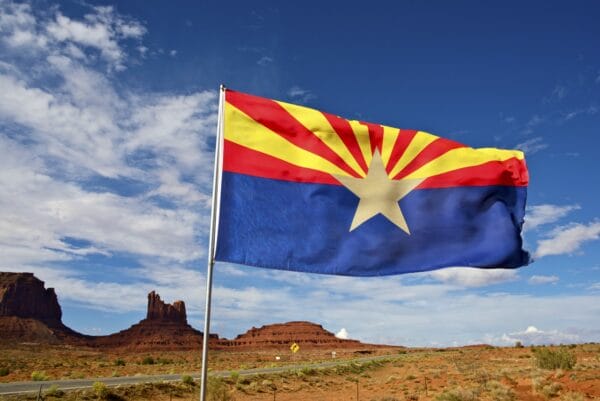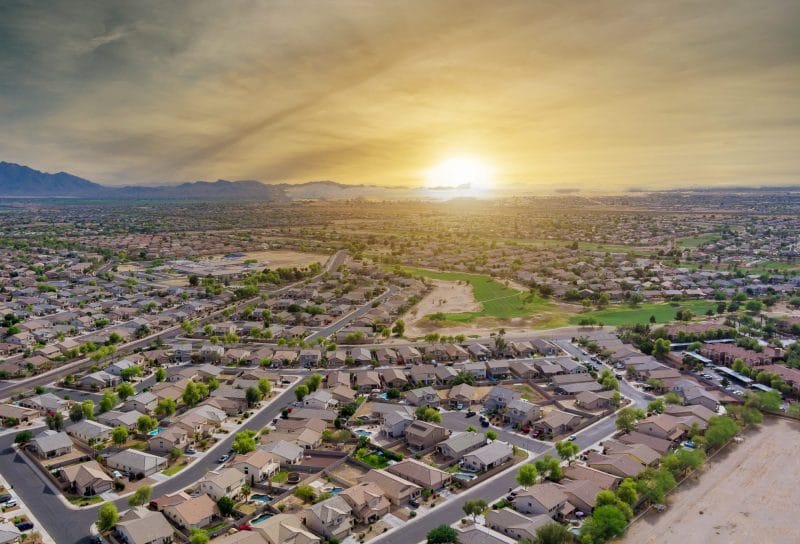B y Philip Haldiman, Editor-in-Chief | The Dealmaker
y Philip Haldiman, Editor-in-Chief | The Dealmaker
Real estate fraud in Arizona has been as common as the day is sunny in this state.
Although things have gotten better, a recent report states that Arizona once again has one of the highest mortgage fraud rates in the country.
Statistics from LexisNexis, a research and data company, show that in 2013, Arizona had the fourth highest mortgage fraud rate in the country.
The report looked at the current composition of proven residential mortgage fraud and misrepresentation involving industry professionals in the United States.
The study states that Phoenix is one of five Metropolitan Statistical Areas where properties make up a combined total 37.3 percent of all the loans investigated in 2013.
Arizona has been in the top five for mortgage fraud index, 2009-2013, according to this report.
Michael Orr, director of the Real Estate Center at Arizona State University, told The Dealmaker that this state, particularly Phoenix, has consistently been near the top of the lists for reported mortgage fraud, predominantly mortgage application misrepresentation.
“So the numbers are not a surprise and do not represent a major change. It would be nice if we weren’t always in the top five,” Orr said. “At least we currently have a fairly low home loan delinquency rate, thanks to the huge number of foreclosures and short sales. But mortgage fraud is now far below the disastrous levels of 2004 through 2007, when it was rampant and uncontrolled in the Phoenix-area.”
Real estate analyst Fletcher R. Wilcox told The Dealmaker that leading up to the Great Recession there was a lot of property value fraud, with properties being over valued and sold for more than what they were worth. The same thing happened in reverse in 2010, when prices were going down and properties were appraised too low.
“But it wasn’t just the appraisers. You had collusion between realtors, lenders, buyers and sellers,” he said.” When prices were skyrocketing, it was hard for appraisers to offer alternative values.”
Wilcox has worked on a number of mortgage fraud events with the Federal Bureau of Investigation.
“We are a big marketplace and that attracts a lot of bad apples,” Wilcox said. “They talk about being a big fish in a little pond, but a bad fish in big, crowded pond can get away with more.”
Licensed mortgage professional Jeff O’Brasky said fraud on the consumer side was more common during the Great Depression, but has decreased as the market has gotten better.
In Arizona, common fraud included second homebuyers falsely stating their intention to occupy a property rather than renting it.
“Back then, you also had Uncle Charlie feeling bad for his nephew, who was under water on his home. So he buys the home, while his nephew stays in the home and pays the mortgage,” he said. “And then at some point down the line, they work it out.”
Jeremy David Schachter, branch manager at Pinnacle Capital Mortgage, said he’s surprised that mortgage fraud is so high right now because of all the restrictions that have been put in place since the Great Recession.
Now there are many more checks and balances, Schachter said.
“Lenders have more tools in place, and brokers and bankers also have more skin in the game,” Schachter said.
The study covered violations over a number of past years, most prior to 2013.
Louis Dettorre, legislative liaison for the Arizona Department of Financial Institutions, said because of that and many other variables, many things must be considered before addressing the number of mortgage applications in Arizona as comparable to other states.
Beginning July 1, 2010, DFI began requiring loan originators to be licensed in Arizona after state statutes were amended, as part of the SAFE Mortgage Licensing Act, designed to enhance consumer protection and reduce fraud by encouraging states to establish minimum standards for the licensing and registration of state-licensed mortgage loan originators, and to establish and maintain a nationwide mortgage licensing system and registry for the residential mortgage industry.
The DFI licenses 19 license types including, state chartered banks and credit unions, mortgage bankers and brokers, as well as loan originators, to name few.
“The lack of regulation of loan originators across the country was the reason the SAFE Act was enacted by Congress,” Dettorre said. “DFI now licenses and regulates over 8,000 loan originators. This number was approximately 4,800 on July 1, 2011, a year after the licensing requirement.”





